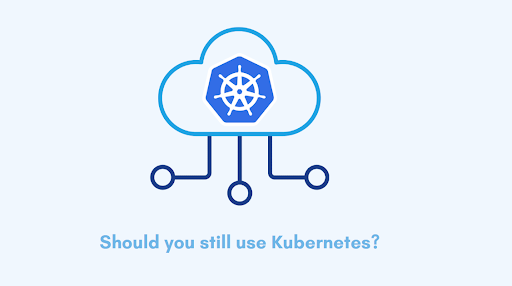Should you still use Kubernetes?

I wanted to explore Kubernetes for a long time after getting recommended by many friends and colleagues, and recently, I was doing some research on it and found this article and Hackernews discussion on basically why you or your organisation doesn't need Kubernetes and what are the other alternatives of Kubernetes like Google Cloud Run. Here is what I found:
This blog is written by Akshat Virmani at KushoAI. We're building the fastest way to test your APIs. It's completely free and you can sign up here.
Kubernetes is the standard for container orchestration due to its flexibility and powerful features. By providing tools for automating deployment, scaling, and management of containerized applications, it has empowered businesses to build highly scalable systems. It is really popular due to its:
- Scalability: Automatically adjusts resources based on demand.
- Portability: Works across multiple cloud providers and on-premises systems.
- Extensibility: Supports custom resources and integrations with other tools.
- Multi-Cloud Deployments: Shines in environments where workloads need to run consistently.
- Custom Workflows: Teams needing control over deployments, security, or resources often choose Kubernetes.
Despite these strengths, Kubernetes has challenges. Its complexity and steep learning curve have made some developers and businesses question its capability for simpler workloads.
Why Some Are Moving Away from Kubernetes
As highlighted in Ben Houston's experience, Kubernetes isn't always the right fit, especially for teams that prioritise simplicity and ease of use. Here are some reasons why businesses might consider alternatives:
1. Complexity
Kubernetes requires good expertise to set up and maintain. Its ecosystem involves numerous components, each with its own configuration and turns. For smaller teams or less complex workloads, this can be overwhelming.
2. Costs
Running Kubernetes clusters can be expensive, both in cloud infrastructure and also in terms of the developers required to manage and optimise the system. This cost can be overwhelming for organisations that don’t fully leverage the advanced features.
3. Excessive for Simple Applications
Teams managing simple web services or APIs may find Kubernetes excessive when alternative platforms provide similar results with less effort.
4. Ecosystem Lock-in
While Kubernetes is cloud-agnostic, its integrations with specific tools and managed services (e.g., EKS on AWS or GKE on Google Cloud) can create vendor lock-in.
Google Cloud Run: A Simpler Alternative
After all the concern around Kubernetes, Google Cloud Run is increasingly becoming the go-to choice for developers seeking simplicity. Here’s why:
1. Ease of Use
Cloud Run excludes the complexities of managing infrastructure. Developers can deploy their containerised applications with just a few clicks or a simple CLI command, focusing more on building features and less on maintenance.
2. Pay-per-Use Pricing
Cloud Run charges only for the actual compute time, making it highly cost-effective for applications with variable or low traffic.
3. Scalability
Like Kubernetes, Cloud Run offers automatic scaling, but it goes to zero when no traffic is detected, which is perfect for non-critical or bursty workloads.
4. Integrated with Serverless Offerings
Cloud Run pairs with Google’s ecosystem, enabling seamless integrations with Firebase, BigQuery, and Pub/Sub services. This makes it ideal for modern applications built around microservices and event-driven architectures.
Deciding Between Kubernetes and Cloud Run
Kubernetes has its own strengths and Google Cloud Run has its own. Choosing between these two totally depends on you and your organisation's needs, Here are some points to keep in mind:
- If you and your organisation lack DevOps expertise or have a small team, Cloud Run is better.
- For monolithic or simple containerised applications, Cloud Run is a better fit. Kubernetes makes sense for large-scale, complex systems.
- Cloud Run’s pay-per-use model is cost-effective for smaller workloads, while Kubernetes may lead to higher fixed costs.
- If you plan to migrate workloads across different environments, Kubernetes offers unmatched flexibility.
This blog is written by Akshat Virmani at KushoAI. We're building an AI agent that tests your APIs for you. Bring in API information and watch KushoAI turn it into fully functional and exhaustive test suites in minutes.

Member discussion